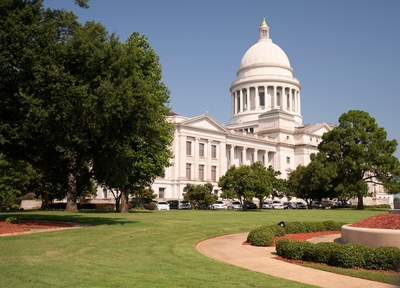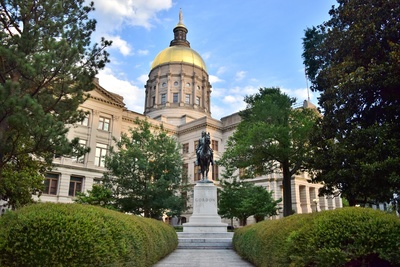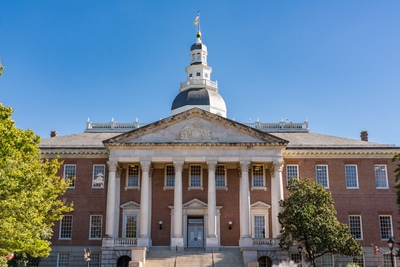
Legal
Social Media Liability Litigation Seeks Foothold in Tort Law (Court Report)
February 4, 2026 | Sandy Dornsife
December 4, 2023 | Michael Greene

Key Takeaways:
This article is part of our latest series: Major Issue Trends in 2023: State Legislative Recap. In this series, our experts examine the high-level legislative trends they saw in the 2023 state sessions. In addition to discussing the most prevalent issues considered by state policymakers, they explore some of the more surprising emerging trends we noticed, plus what to expect in 2024 for many of these policy areas. The series will be released during November and December, with new articles each week. Explore the full series here, and be sure to sign up for our email list so you don’t miss out on any articles (check the “Blog Posts” box).
Debates related to amateur status and compensation of student-athletes have been ongoing for a number of years. From the O’Bannon and Jenkins cases to recent action by the National Labor Relations Board (NLRB), the growing increase in focus and publicity surrounding the issue has led to over half of the country’s state legislatures enacting policies specifically allowing student-athletes to be financially compensated for the use of their name, image, and likeness (NIL). It has only been four years since the first NIL bill was enacted and yet the conversation seems to have swiftly shifted toward employment classification for athletes. This has come as somewhat of a surprise due to the complexity of the issue and how relatively new NIL is in the college athletics world. In the current landscape, two things are clear, support for student-athletes receiving compensation for their name, image, and likeness has never been higher and the fight over employment classification has only just begun.
As the use of a player's NIL has been allowed nationwide for a handful of years, the question now being asked is whether student-athletes should be considered employees and receive the benefits that come with that classification, including access to health care, the power to unionize, and access to revenue generated by various sports at their schools.
This year, four states considered legislation that would provide student-athletes with some level of employment-related benefits. California AB 252 would establish a degree completion fund and a College Athlete Protection Program/Fund. Michigan HB 4497 would repeal the collective bargaining exception for student athletes from state law. New York AB 5099/SB 2748 would provide college athletes with collective bargaining rights. Finally, South Carolina SB 306 would award stipends to student-athletes from funds generated from sport gross revenue. California led the charge on NIL legislation so look for others to follow if/when the state enacts employment-related legislation.
State legislatures aren’t the only governing bodies to have taken up the employment issue. The NLRB issued a memo in the Fall of 2021 stating that student-athletes at private colleges and universities should be considered employees under the National Labor Relations Act. Additional complaints have been filed with the Board over the past few years and the outcome of those proceedings will have massive implications regarding employment status of student athletes.
The debate surrounding NIL and employment for student-athletes has not solely been held at the state level. Federal legislators have taken note of the current patchwork of state laws and, in the past year alone, have drafted a number of bills addressing the NIL and employment issues. Three draft bills of note include Senators Blumenthal (D-CT), Booker (D-NJ), and Moran’s (R-KS) College Athletes Protection and Compensation (CAPC) Act of 2023, Senators Manchin (D-WV) and Tuberville’s (R-AL) Protecting Athletes, Schools and Sports (PASS) Act, and Senator Cruz’s (R-TX) unnamed NIL/Employment draft bill.
All three of these draft bills include language related to employment provisions for college athletes in some shape or form. The CAPC Act requires athletic departments earning $20 million or more in revenue to cover athlete medical expenses for at least two years. Departments earning $50 million or more would be required to cover expenses for four years. The draft bill also creates a medical trust fund for long-term injuries. Similar to the CAPC Act, the PASS Act creates a health care trust fund. Unlike those bills, Cruz’s NIL/Employment draft specifically states that student-athletes are not employees and thus are not entitled to certain benefits. The bill goes one step further by including language that expressly prohibits states from enacting laws related to compensation, NIL, and employment status for student-athletes. At this stage, Only the Manchin/Tuberville bill has been formally introduced.
It's difficult to predict what lies ahead for the employment-related legislation for student athletes, especially as much of the future surrounding the issue will be heavily impacted by the outcome of NLRB rulings and federal legislation. Generally, California tends to be a national leader on issues such as this (the first state to enact NIL legislation), so it’s likely we will see this spill over to even more states in the coming years.
MultiState’s team is actively identifying and tracking this important legislation so that businesses and organizations have the information they need to navigate and effectively engage. If your organization would like to further track this and other issues, please contact us.

February 4, 2026 | Sandy Dornsife

January 26, 2026 | Jason Phillips, Anthony Amatucci

December 9, 2025 | Marvin Yates